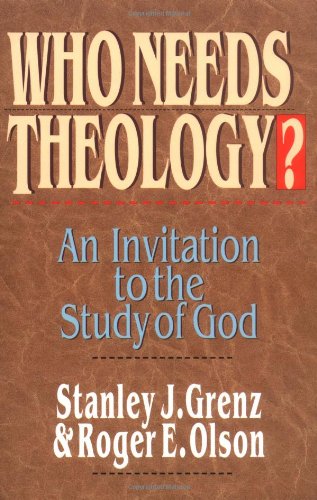This book was required reading for my first theology class in seminary: Method and Praxis. The class was an over view of theology and philosophy to see what the method and praxis of the past have been to better inform students as they began to do their own theological study. (However I will say that most people who took this class did not get nearly as much out of it as I did because I consider myself very lucky to have taken it with a different professor then most people did.)
I would recommend this book to any Christian. It takes a look at who is a theologian (anyone who has thoughts on God); the misconceptions that people have about theology (you know those ideas that theologians some how great thinkers that can not be understood by the 'ordinary' christian, or that theology is a dead form of Christianity that is somehow antagonistic towards prayer and faith); and why Profesional theologians need Lay Theologians (they going in depth in talking about different kinds of theologians, generally the description of a lay theologian is that they are reflective about their faith and do not settle for the easy quick and cliches).
One of my favorite points Olsen and Grenz make is that while all people are theologians not all theologies are equal. Olsen and Grenz categorize theologies on a spectrum of reflectiveness. On the one end with little reflection is the Folk Theology which rejects Critical reflection and prefers simplistic acceptance of beliefs mostly organized in cliches and legends. On the other end is the Academic Theology which is highly speculative and often disconnected from the church. In the middle is Lay Theology, who are reflective of their faith and want better answers to their questions then pithy sayings; Ministerial Theology, who have had some kind of training so they can teach and preach; and Professional Theology, a person whose vocation involves studying the tools of theology and instructing lay people and pastors in their use. (Grenz and Olsen make a note that the professional theologian should not be seen in a lordly role but in a servant role towards those who practice Lay and Ministerial theologies.)
I should also add here that Grenz and Olsen do not want to imply that Professional Theology is better then Ministerial Theology, which in turn is better then Lay Theology. Instead these three keep each other grounded. Professional Theologians who don't spend time with lay people are in danger of becoming Academics who have contempt for christians who are 'uneducated'. and Lay Theologians are in danger of falling into Folk Theology without the guidance of Professional and Ministerial Theologians.
I'll be back next week to talk about the next couple of chapters of this book, till then God Speed.

No comments:
Post a Comment